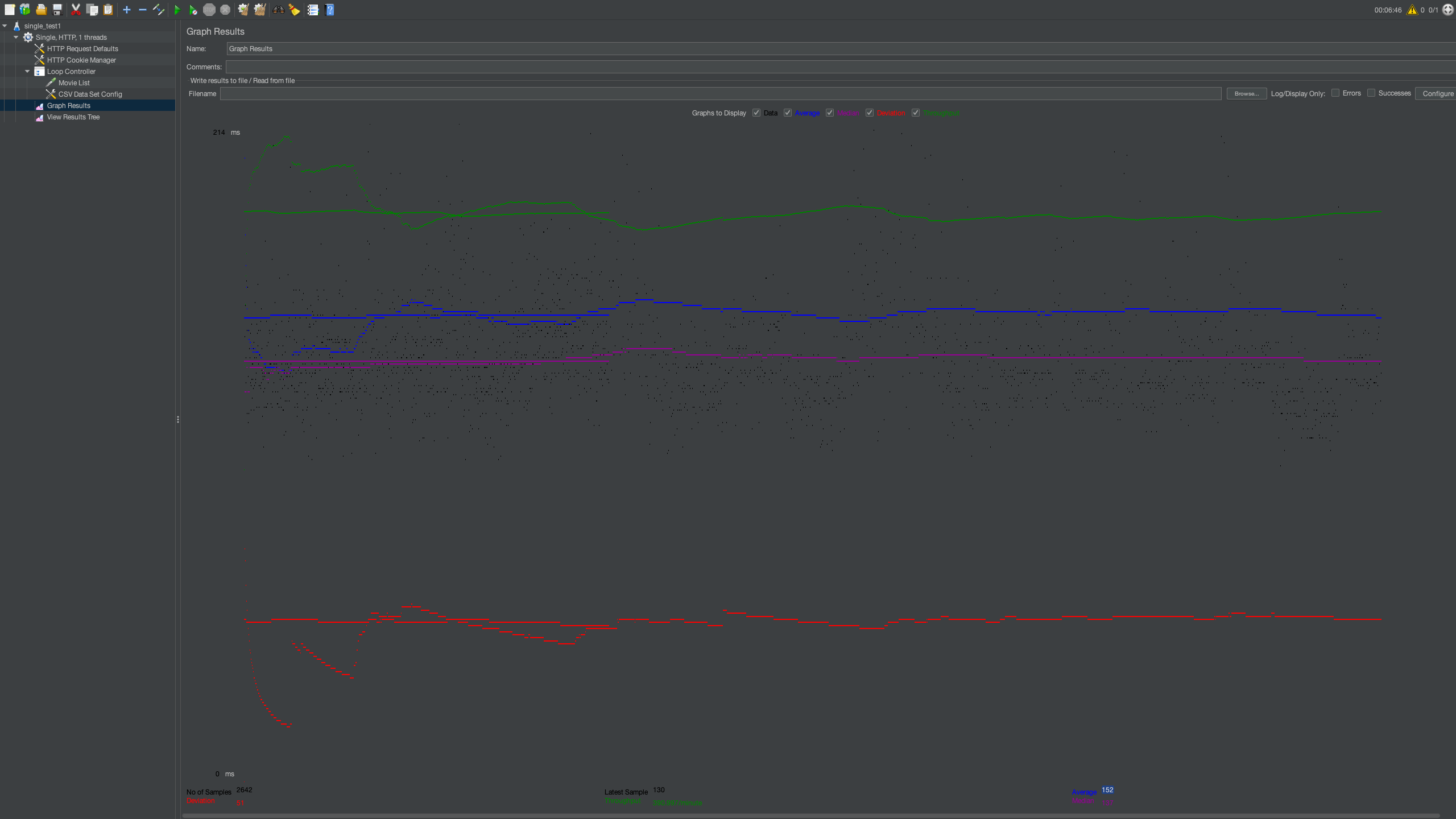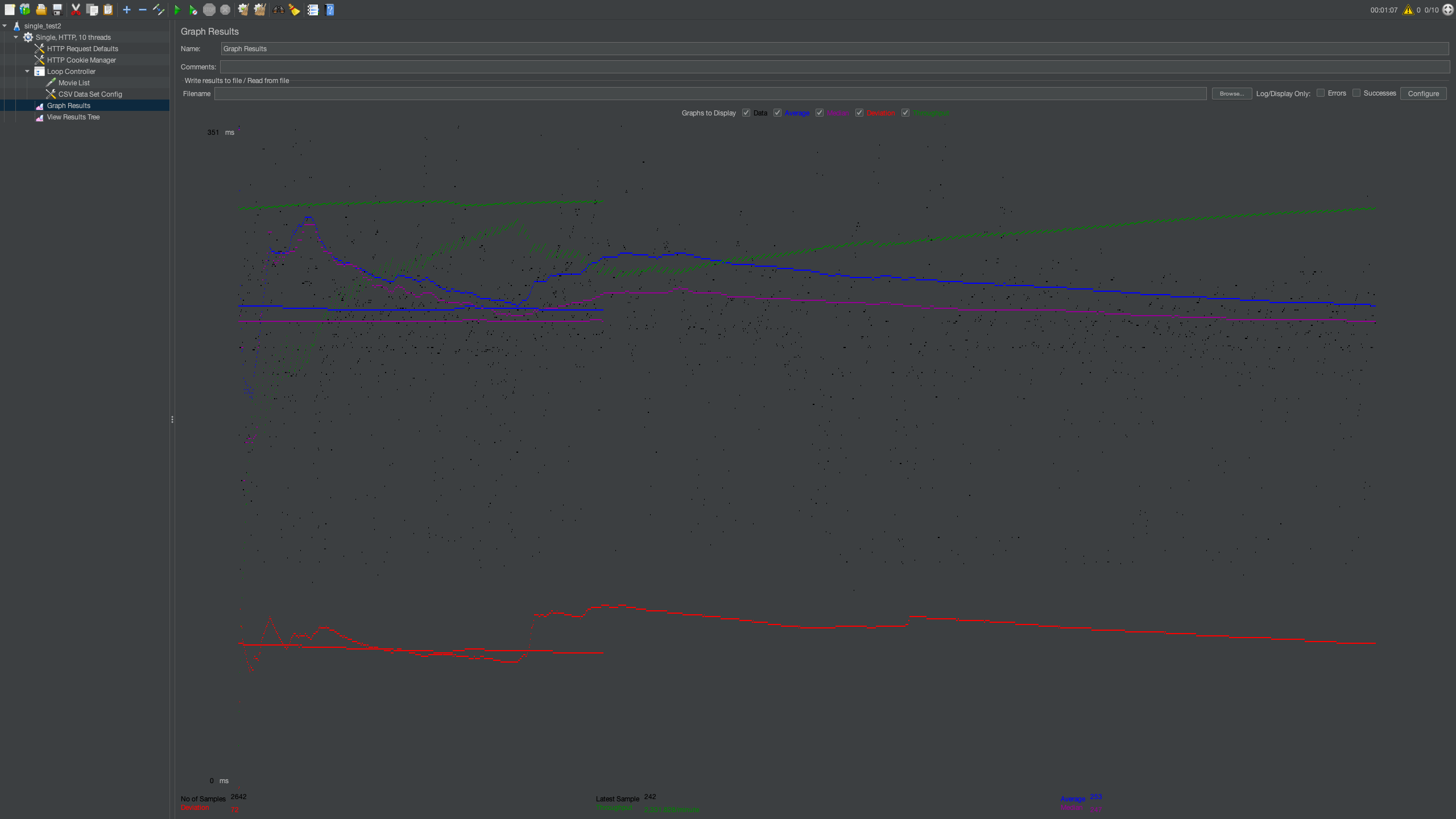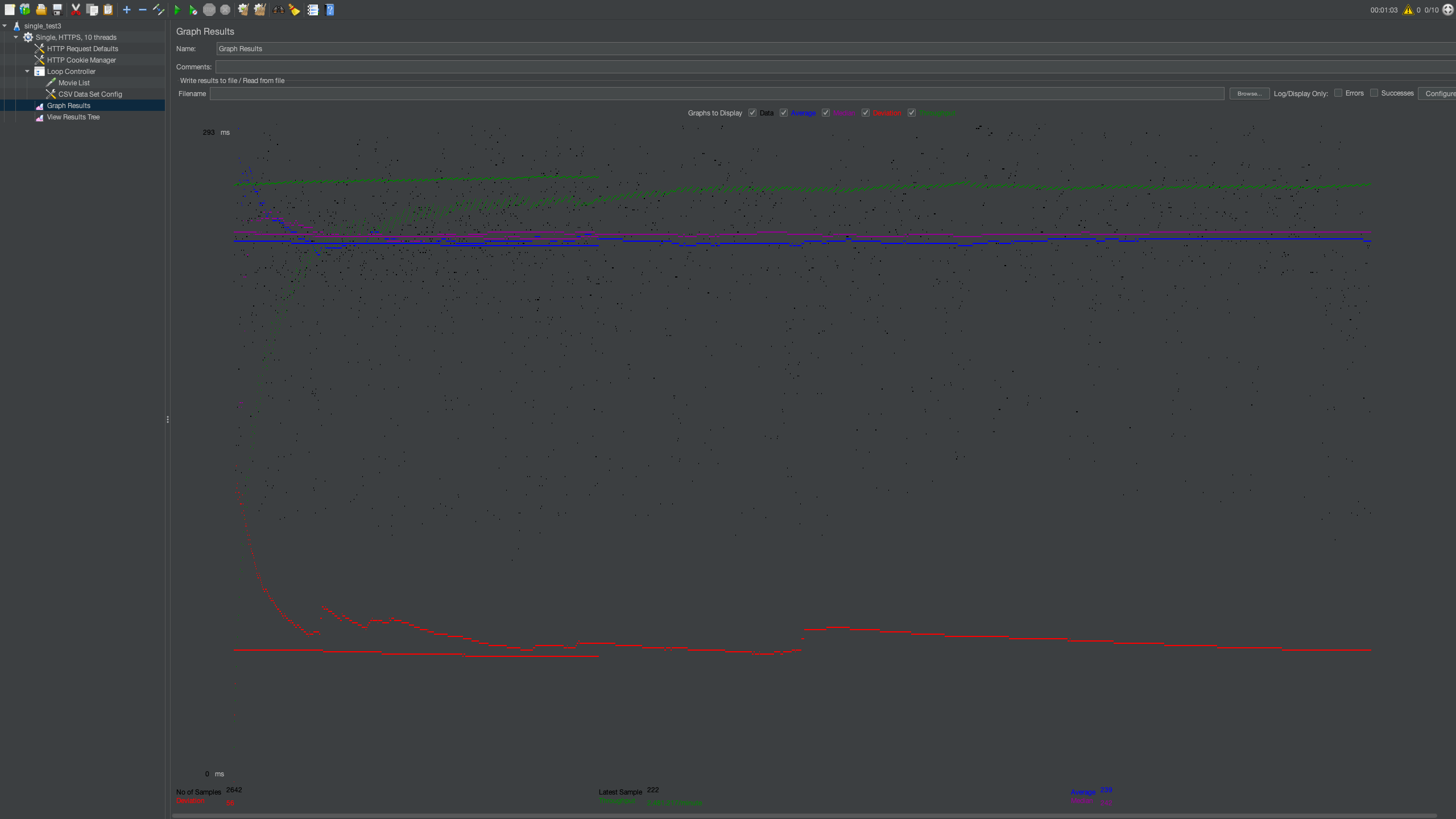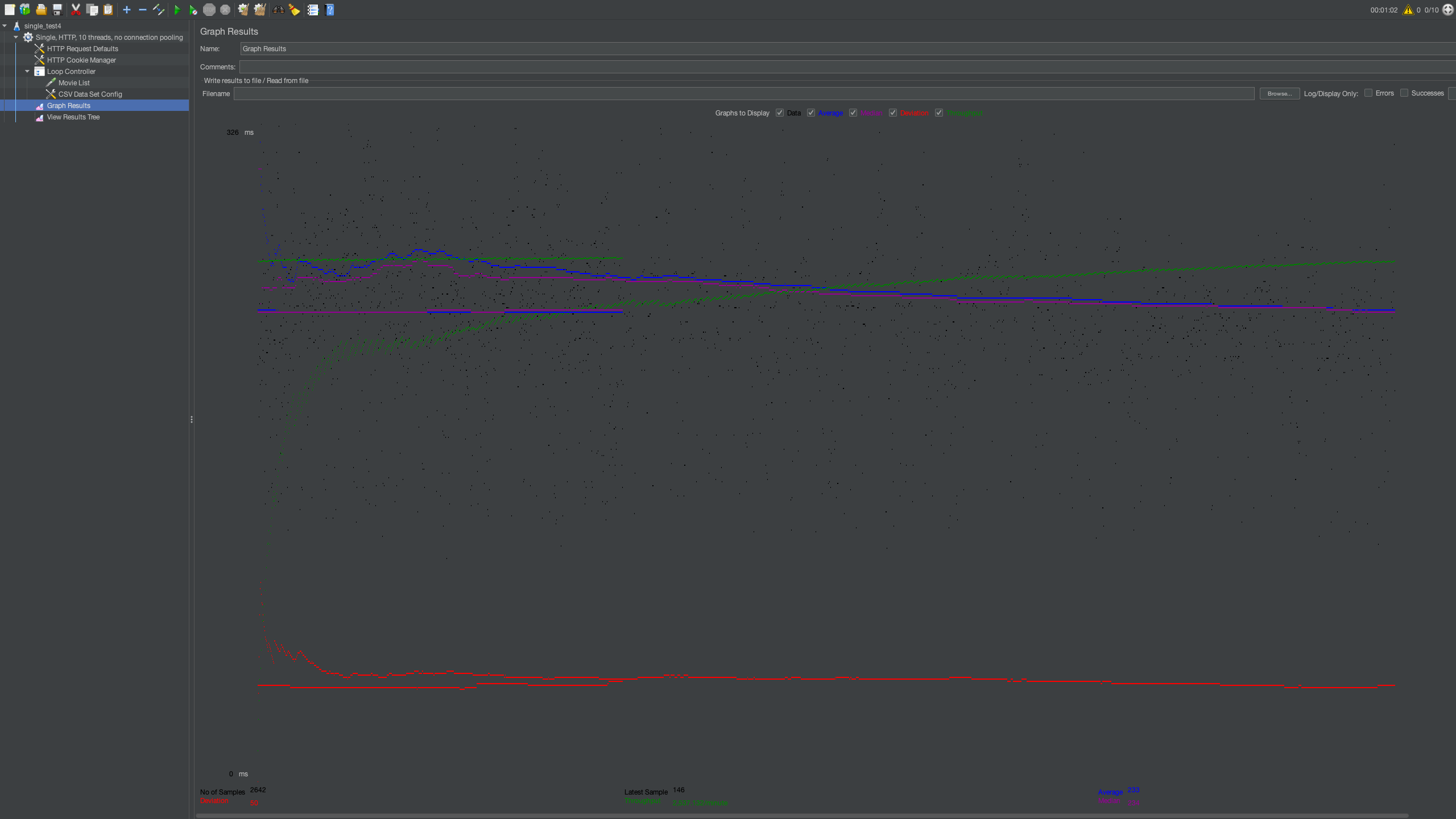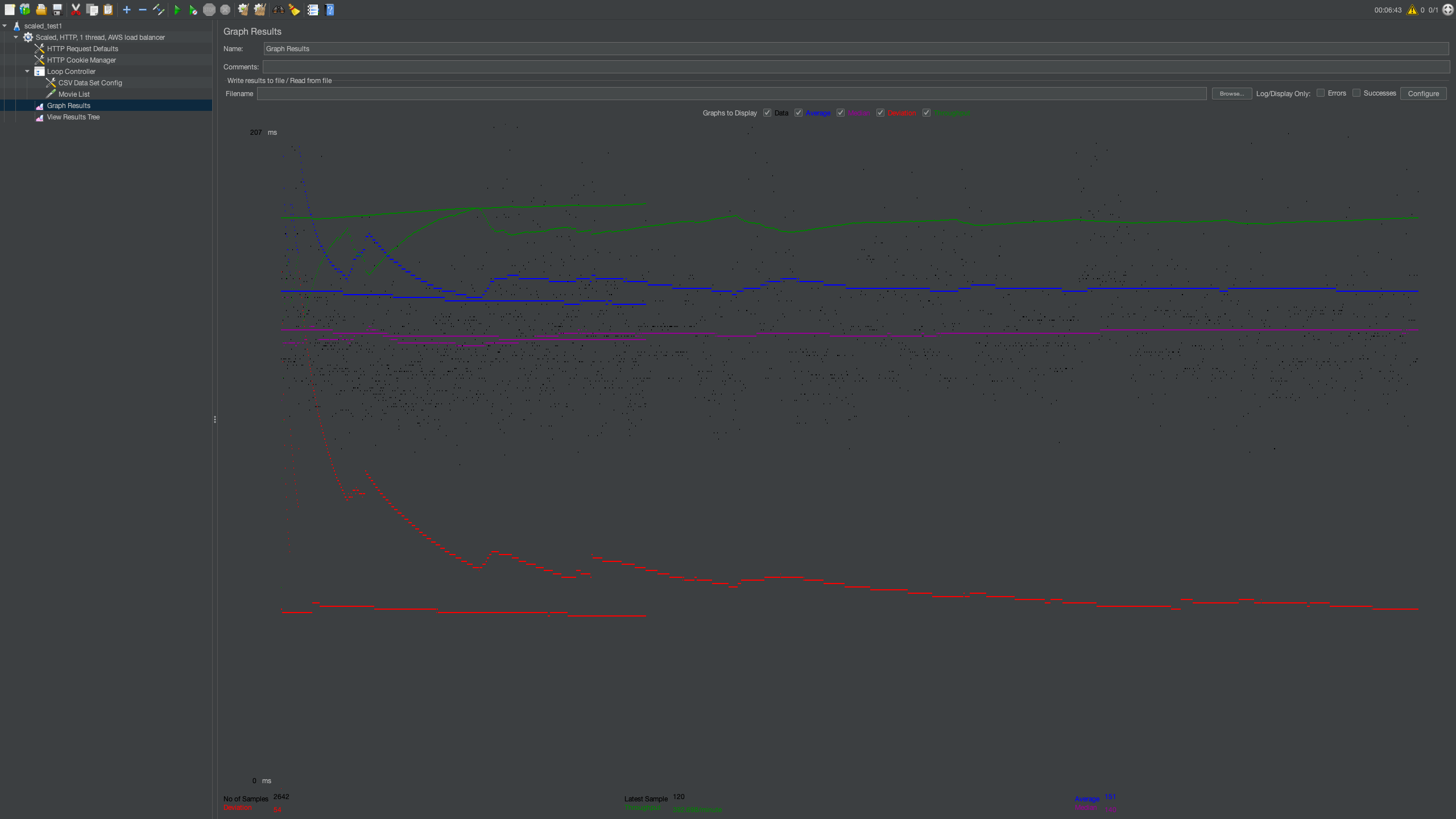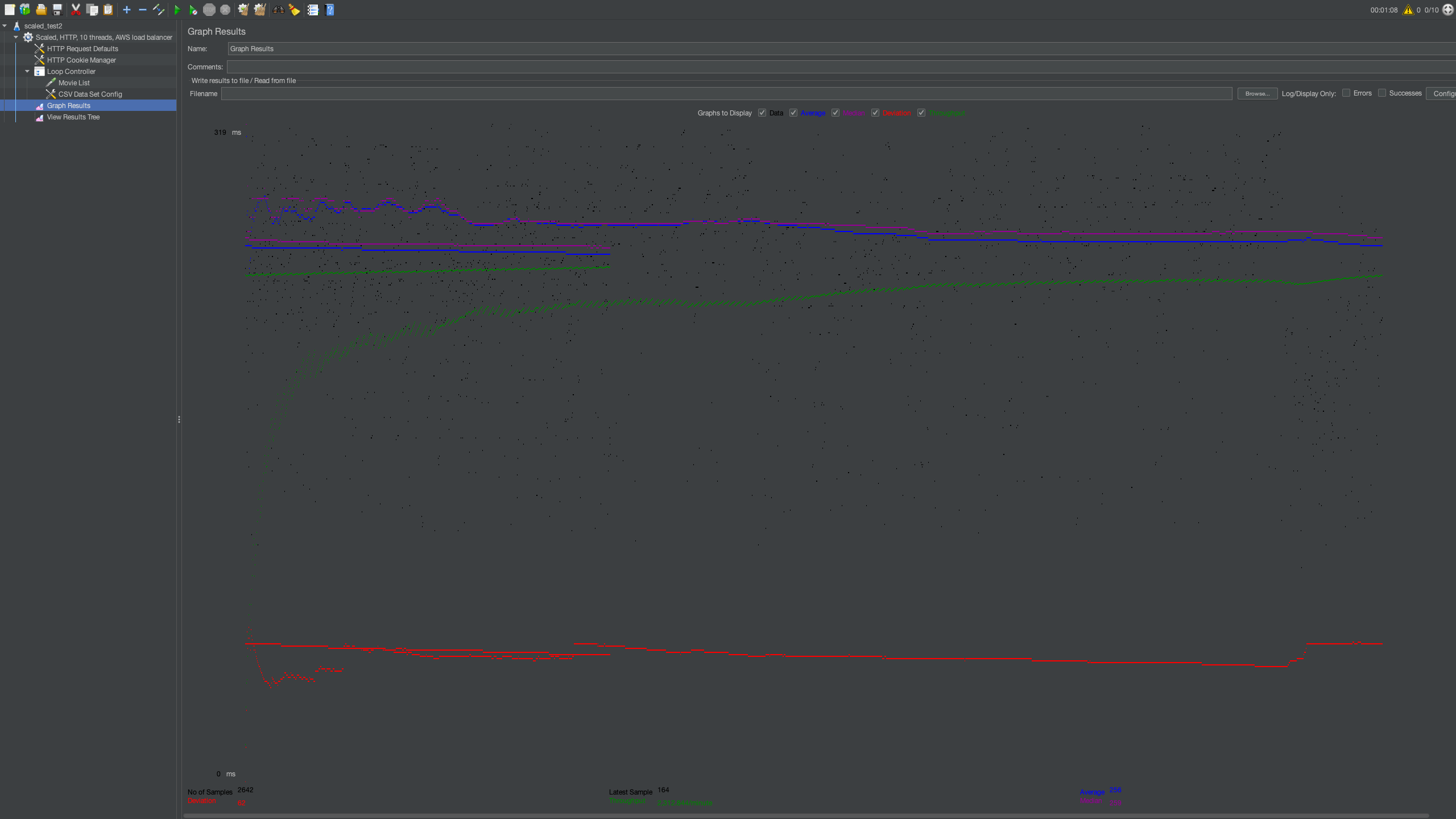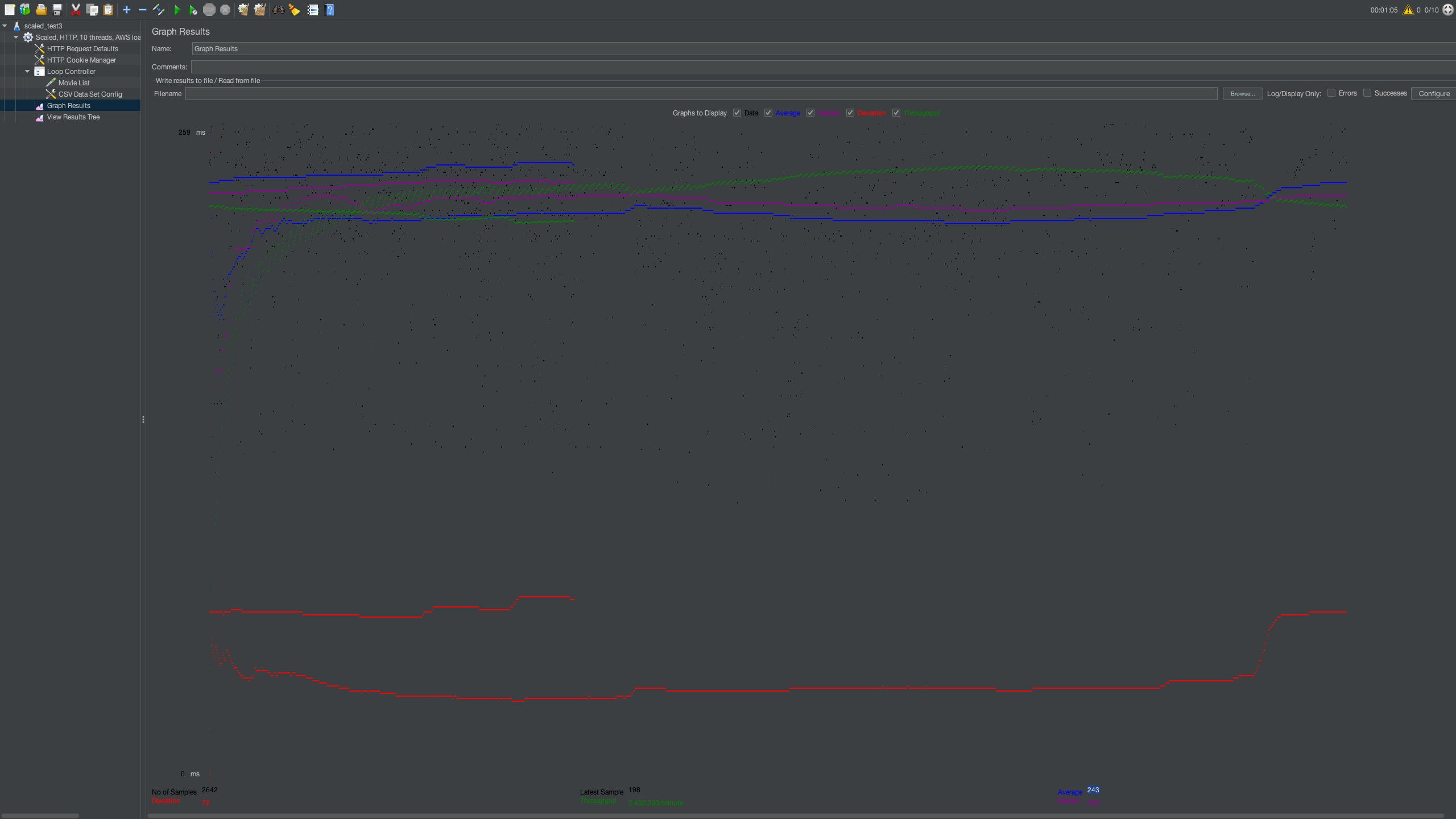- src/main/java/
- src/main/webapp/
- img/
- logs/
- scripts/
- tests/
- sql/createtable.sql
- sql/addPriceColumn.sql
- sql/createtable.sql
- sql/modifySales.sql
- sql/stored-procedure.sql
- encryptPasswords/
- saxparser/
- android/
- Project 1: https://www.youtube.com/watch?v=2dUSiSQxQ4E
- Project 2: https://youtu.be/qcDCc_ruLi4
- Project 3: https://youtu.be/Ut7OkenKhPM
- Project 4: https://www.youtube.com/watch?v=guQE3P9Lbys
- Project 5: https://www.youtube.com/watch?v=PMEKwPwXz4M
Inside the repo where the pom.xml file is, run 'mvn package'. > Run 'ls -lah /var/lib/tomcat9/webapps/' to see if the WAR file is already deployed > If it is deployed, remove the previous .WAR file, otherwise, run 'sudo cp ./target/*.war /var/lib/tomcat9/webapps/'
The deployed application will appear here: https://3.145.195.57:8443/demo1-1.0-SNAPSHOT/
- Roy:
- Project 0 and 1: set up aws instance, tomcat & maven, wrote sql script, populated MySQL on aws instance, wrote part of MovieListServlet.java, wrote SingleStarServlet.java, did styling for single-star page
- Project 2: implemented the main page (with search and browse) (task 2), implemented the shopping cart (task 4)
- Project 3: Adding HTTPS (task 3), Use PreparedStatement (task 4), Importing large XML data files into the Fabflix database (task 7)
- Project 4: Developing an Android app for Fabflix (task 2)
- Project 5: MySQL Master-Slave Replication (task 2), Scaling Fabflix with a cluster of MySQL/Tomcat and a load balancer (task 3)
- Angeline:
- Project 0 and 1: set up git repo, wrote part of MovieListServlet.java, wrote SingleMovieListServlet.java, did styling for movie-list page (home), did styling for single-movie page
- Project 2: implemented the login page (task 1), implemented the extension of move list page, single pages & jump functionality (task 3)
- Project 3: Adding reCAPTCHA (task 2), Use encrypted password (task 5), Implementing a Dashboard using Stored Procedure (task 6)
- Project 4: Improving the Fabflix by full-text Search and Autocomplete (task 1)
- Project 5: JDBC Connection Pooling (task 1), Measuring the performance of Fabflix search feature (task 4)
- The LIKE predicate was only used in the file 'src/main/java/MovieListServlet.java'
- was used to find all strings containing a pattern (i.e. '%abc%') for the columns Title, Director, Star, Genre
- was used to find all strings starting with a pattern (i.e. 'abc%') for the alphabetical browse feature
The following files used PreparedStatements:
- https://github.com/uci-jherold2-teaching/cs122b-fall-team-2/blob/main/src/main/java/ConfirmationServlet.java
- https://github.com/uci-jherold2-teaching/cs122b-fall-team-2/blob/main/src/main/java/DashboardLoginServlet.java
- https://github.com/uci-jherold2-teaching/cs122b-fall-team-2/blob/main/src/main/java/DashboardServlet.java
- https://github.com/uci-jherold2-teaching/cs122b-fall-team-2/blob/main/src/main/java/IndexServlet.java
- https://github.com/uci-jherold2-teaching/cs122b-fall-team-2/blob/main/src/main/java/LoginServlet.java
- https://github.com/uci-jherold2-teaching/cs122b-fall-team-2/blob/main/src/main/java/MovieListServlet.java
- https://github.com/uci-jherold2-teaching/cs122b-fall-team-2/blob/main/src/main/java/PaymentServlet.java
- https://github.com/uci-jherold2-teaching/cs122b-fall-team-2/blob/main/src/main/java/ShoppingCartServlet.java
- https://github.com/uci-jherold2-teaching/cs122b-fall-team-2/blob/main/src/main/java/SingleMovieListServlet.java
- https://github.com/uci-jherold2-teaching/cs122b-fall-team-2/blob/main/src/main/java/SingleStarServlet.java
-
Applied a Full-Text Index to the "name" field of "stars" table:
- Example command (in FabflixSAXParser.java): "INSERT IGNORE INTO stars SELECT ? , ? , ? WHERE NOT EXISTS (SELECT * FROM stars WHERE MATCH (name) AGAINST ( ? IN BOOLEAN MODE) AND name= ?)"
- Inserting movies and stars without an index took 4612.5007683 seconds on one try
- Inserting the same things with an index took 29.4568725 seconds on one try
-
Reduced number of calls to MySQL:
- Example commands BEFORE optimization (in FabflixSAXParser.java):
- "SELECT id FROM stars WHERE MATCH (name) AGAINST ( ? IN BOOLEAN MODE) AND name= ? "
- "INSERT IGNORE INTO stars_in_movies VALUES( ? , ? )"
- Example commands AFTER optimization (in FabflixSAXParser.java):
- "INSERT IGNORE INTO stars_in_movies SELECT id , ? FROM stars WHERE MATCH (name) AGAINST ( ? IN BOOLEAN MODE) AND name= ?"
- Inserting movies, stars, stars_in_movies using 2 statements for this purpose took 213.9138421 seconds on one try
- Inserting the same things using 1 combined statement took 112.4215092 seconds on one try
- Example commands BEFORE optimization (in FabflixSAXParser.java):
mains243.xml:
Line '2585': 'year' element not found (or in non-integer format). Line '2887': 'fid' element not found. Line '2893': 'fid' element not found. Line '2894': 'fid' element not found. Line '2895': 'fid' element not found. Line '2897': 'fid' element not found. Line '2898': 'fid' element not found. Line '2899': 'fid' element not found. Line '2900': 'fid' element not found. Line '2901': 'fid' element not found. Line '2902': 'fid' element not found. Line '2903': 'fid' element not found. Line '2904': 'fid' element not found. Line '2905': 'fid' element not found. Line '2906': 'fid' element not found. Line '2907': 'fid' element not found. Line '2908': 'fid' element not found. Line '5497': 'year' element not found (or in non-integer format). Line '6578': 'year' element not found (or in non-integer format). Line '6585': 'year' element not found (or in non-integer format). Line '8542': 'year' element not found (or in non-integer format). Line '8724': 'cats' element not found. Line '9056': 'year' element not found (or in non-integer format). Line '9688': 'year' element not found (or in non-integer format). Line '9711': 'year' element not found (or in non-integer format). Line '10689': 'year' element not found (or in non-integer format). Line '10836': 'year' element not found (or in non-integer format). Line '12102': 'year' element not found (or in non-integer format). Line '13715': 'year' element not found (or in non-integer format). Line '14220': 'cats' element not found. Line '14489': 'year' element not found (or in non-integer format). Line '14525': 'year' element not found (or in non-integer format). Line '14560': 'year' element not found (or in non-integer format). Line '14651': 'year' element not found (or in non-integer format). Line '15057': 'year' element not found (or in non-integer format). Line '15270': 'dirname' element not found. Line '15271': 'dirname' element not found. Line '15418': 'dirname' element not found. Line '15422': 'dirname' element not found. Line '15425': 'dirname' element not found. No of movies '12115'.
casts124.xml:
No of casts '48938'.
actors63.xml:
Line '927': 'dob' element not found. No of stars '6838'.
- https://github.com/uci-jherold2-teaching/cs122b-fall-team-2/blob/main/src/main/java/ConfirmationServlet.java
- https://github.com/uci-jherold2-teaching/cs122b-fall-team-2/blob/main/src/main/java/DashboardLoginServlet.java
- https://github.com/uci-jherold2-teaching/cs122b-fall-team-2/blob/main/src/main/java/DashboardServlet.java
- https://github.com/uci-jherold2-teaching/cs122b-fall-team-2/blob/main/src/main/java/IndexServlet.java
- https://github.com/uci-jherold2-teaching/cs122b-fall-team-2/blob/main/src/main/java/LoginServlet.java
- https://github.com/uci-jherold2-teaching/cs122b-fall-team-2/blob/main/src/main/java/MovieListServlet.java
- https://github.com/uci-jherold2-teaching/cs122b-fall-team-2/blob/main/src/main/java/MovieSuggestion.java
- https://github.com/uci-jherold2-teaching/cs122b-fall-team-2/blob/main/src/main/java/PaymentServlet.java
- https://github.com/uci-jherold2-teaching/cs122b-fall-team-2/blob/main/src/main/java/ShoppingCartServlet.java
- https://github.com/uci-jherold2-teaching/cs122b-fall-team-2/blob/main/src/main/java/SingleMovieListServlet.java
- https://github.com/uci-jherold2-teaching/cs122b-fall-team-2/blob/main/src/main/java/SingleStarServlet.java
To use Connection Pooling with two backend SQL, you need to set 'cachePrepStmts' to true in order to cache the prepared statements. Prepared statements are specific to each connection.
-
Include the filename/path of all code/configuration files in GitHub of routing queries to Master/Slave SQL.
- src/main/webapp/WEB-INF/web.xml
- src/main/webapp/META-INF/context.xml
-
- Two MySQL dataSources are introduced in web.xml and defined in context.xml. Configurations for connection pooling are included when necessary.
- One dataSource is for reading while the other is for writing. The dataSource url in context.xml contains the "cachePrepStmts=true" argument for PreparedStatements to work with connection pooling. The url ip is always "localhost" for the read dataSource. The url ip for the write dataSource, on the other hand, is the private ip of the master instance for the slave deployment and "localhost" for the master deployment.
- With sticky session in place, whichever (master/ slave) instance that gets connected to will have all of its read requests performed on its local MySQL database. As for write requests, the master instance will write to its own local MySQL database and the slave instance will write to the master's MySQL database.
- The MySQL user referenced by the write dataSource on the slave instance is a master instance MySQL user, with "%" as host name and is granted all rights. This allows for writing to a remote MySQL database.
- The AWS security groups for the master and slave instances have an inbound rule for port 3306 (MySQL/ Aurora) that is opened to each other's private ip.
- Master/ slave replication must be set up before the configurations above are performed.
- Run log_processing.py script to print average query time and average search servlet time.
- ts_log.log and tj_log.log stored in /var/lib/tomcat9/webapps/demo1-1.0-SNAPSHOT/ on aws instance.
- Run clear_log_processing.py script to remove logs.
